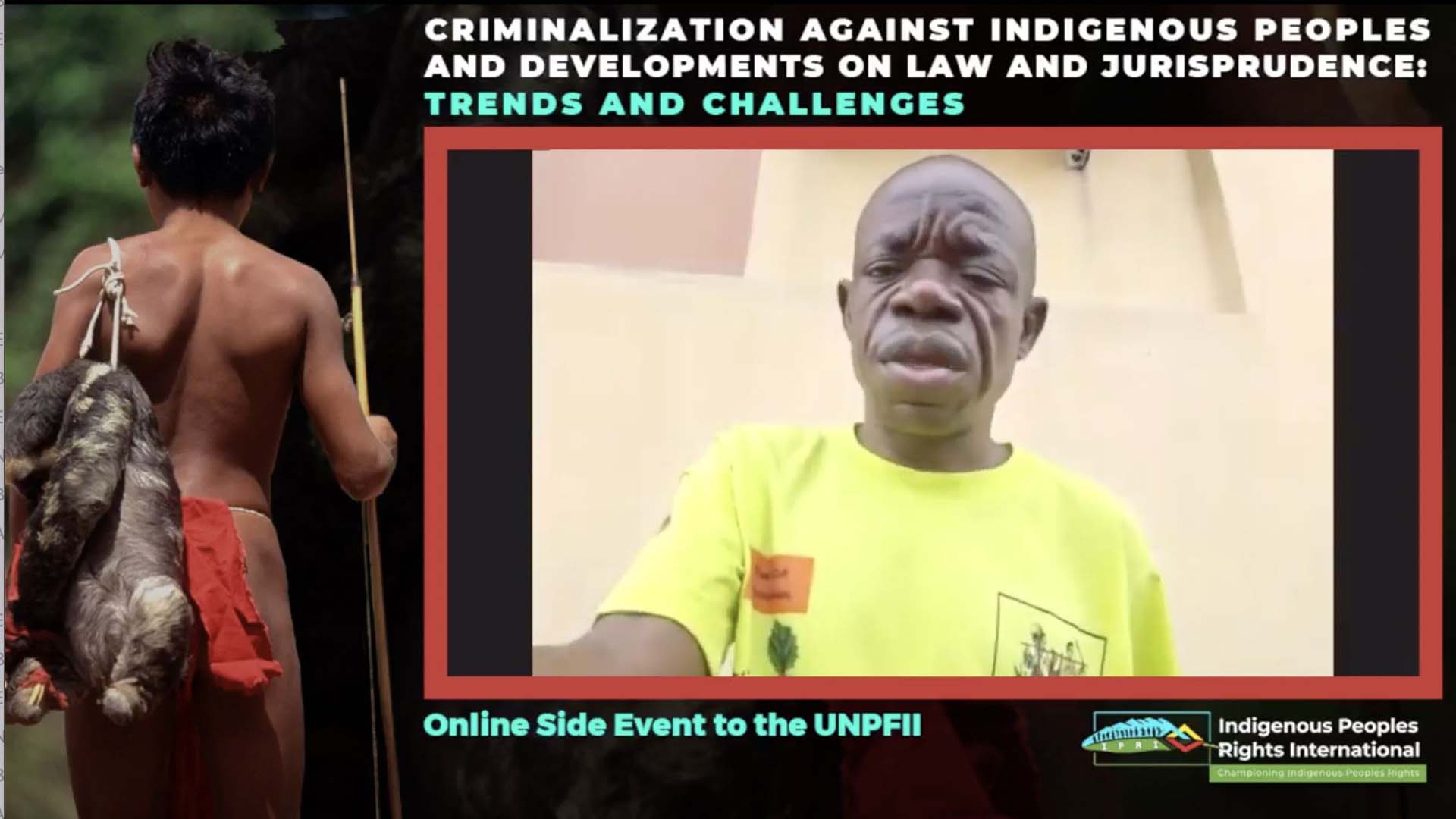The 2021 Annual Report conducted in the field by Indigenous Peoples Rights International shows a persistent criminalization against indigenous peoples aggravated by a lack of political will on the part of governments.
The overview of the research - which will be presented in full in the coming weeks - and relevant cases from six focus countries were presented at the event "Criminalization of Indigenous Peoples and Developments in Law and Jurisprudence", held in the context of the 21st session of the UN Permanent Forum on Indigenous Issues.
The six countries that presented cases were chosen because they are those with the highest numbers of indigenous people attacked and killed worldwide: Brazil, Colombia, the Democratic Republic of Congo, Mexico, India, and the Philippines.
The general editor of the research, Joyce Godio, anticipated the trends contained in the report. The first is the relationship between hate speech and smear campaigns -online and offline- with attacks and human rights violations against defenders and indigenous peoples.
Secondly, it is noted that the violence and attacks recorded extend to the collective dimension: to the organizations, communities, and families of the people attacked. For the organization, thirdly, it is clear that indigenous leaders are most of the targets of the attacks, as a way to attack and weaken the governance structures of communities and peoples.
Fourth, it was recorded that the assassinations of indigenous leaders are usually preceded by threats that seek to incite fear or delegitimize advocacy efforts.
Fifth, the report reveals that the cases of assassinations and criminalization occur in conjunction with other human rights violations, such as displacement, torture, forced disappearance, and so on.
Sixthly, it points out that many human rights violations are justified under security or anti-terrorist laws, so indigenous activists and human rights defenders are labeled as members of armed or communist groups, etc.
A seventh fact reported in the report is that the militarization of indigenous territories increases cases of human rights violations, while State security agents enjoy impunity.
Finally, it warns that -especially in Latin America- governments do not have specific programs or actions to address issues involving armed groups, which leaves indigenous territories often insecure and uninhabitable.
To present the cases of Mexico, Yaqui lawyer Anabela Carlón took the floor. She pointed out that, despite being a country recognized for supporting international indigenous rights instruments, Mexico has a high level of violence against Indigenous Peoples by economic, political, and criminal power groups. The IPRI team identified in 2021 16 cases of serious human rights violations against indigenous peoples, such as killings, displacement, persecution, forced disappearance and land theft, as well as violation of free, prior and informed consent. Carlón presented the cases of Aldama, Chiapas; Paso de la Reyna, Oaxaca; Zitácuaro, Michoacán; and Repechique, Chihuahua.
Windel Bolinget, a well-known activist from the Philippines who has been a victim of criminalization, pointed out that in his country, Indigenous Peoples live mostly in the mountains, rich in resources, making them a target of extractivism. Because of the defense of their lands, indigenous people are persecuted, while the laws favor the companies. Constant free, prior, and informed consent violations lead to expropriation and displacement. The current government pursues a counterinsurgency and national security policy that criminalizes legitimate dissent and seriously violates the rights of indigenous peoples, including massacres.
On the Brazilian side, indigenous defender Sonia Guajajara emphasized that at this moment there is a lot of tension and hate speech against Indigenous Peoples, promoted by President Bolsonaro. In addition, with the October elections approaching, the government is accelerating the approval of initiatives harmful to Indigenous Peoples; one is the legalization of illegal mining in indigenous territories. This activity is highly negative for indigenous peoples, as it not only takes away their lands, but they also suffer murders at the hands of the miners.
In India, a first problem is that there is no official data on the deaths of Adivasis in jail or in police custody, reported Dilip Chakma. There has been a steady increase in violations of indigenous peoples' rights, particularly in cases of criminalization and militarization, where impunity prevails. It is important that Indigenous Peoples have access to the judicial system.
In the Democratic Republic of Congo, massacres in several provinces and arbitrary arrests by eco-guards were recorded in 2021. Diel Mochiré, a Pygmy indigenous defender, said that the defense of their rights leads to the criminalization of indigenous peoples and that the international commitments signed are not being implemented. For this reason, he considered it necessary to implement follow-up measures at the national and international levels.
The Executive Director of IPRI, Joan Carling, then informed that the organization is launching a Digest of legislation and jurisprudence related to the rights of Indigenous Peoples at the international, regional and national levels, as a tool that can encourage and strengthen the actions of Indigenous Peoples to advance the realization of their rights in law and in practice. The Digest will be a regular publication of IPRI.
Sami academic, activist and reindeer herder Lars-Ander Baers noted that in the case of the Sami people, the Digest takes up rulings on mining concessions without FPIC, self-identification issues, wind farms and fisheries in judgments that will be very useful, and called for a detailed review of the publication.
Samia Slimane, from UN-DH, agreed that criminalization is one of the main violations of the rights of Indigenous Peoples. She pointed out that the role of companies and their responsibility to respect human rights is also important. He also encouraged Indigenous Peoples to use UN mechanisms to defend their rights.
Victoria Tauli-Corpuz, co-founder of IPRI, noted that the concrete cases exposed show the extent of criminalization against Indigenous Peoples and force us to do much more to address it. "We must show the world that it has to do something about it. Racism and structural discrimination must be tackled at the root," she concluded.


%2020.49.20.png)
